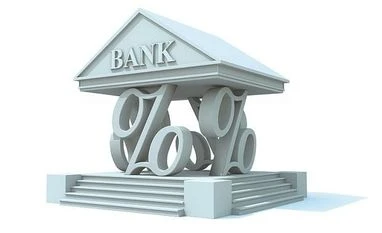Canada's central bank will make its first major policy decision of 2022 at a time when consumer prices are rising at their fastest clip in 30 years and a harsh Omicron-fueled wave of coronavirus infections is just beginning to ebb.
"It's a toss up really," said Stephen Brown, senior Canada economist at Capital Economics. "I mean, (the BoC) was clear it was getting more concerned about inflation. But in terms of the type of hints that a central bank might normally send when it's about to hike, we haven't quite had them." Regardless of when the first increase comes, it is nearly certain to be the first of many this year. Brown sees four hikes in 2022, up to 1.25%. Money markets, meanwhile, are pricing in six to 1.75% to quell spiraling price gains on everything from housing to new appliances.
Canada's inflation rate hit 4.8% in December, the highest since September 1991 and the ninth month in a row above the Bank of Canada's 1-3% control range. Inflation has not been this high for this long since the central bank set its 2% target in 1991.
The BoC renewed that target in December. Two days later, Governor Tiff Macklem said the slack in Canada's economy was "substantially diminished" and the Bank was "not comfortable" with the current path of inflation.
That was a clear signal a tightening was imminent, said Derek Holt, head of capital markets economics at Scotiabank, further bolstered by new survey data showing inflation expectations continue to mount for consumers and businesses.
"At this point in the cycle, the risks to choosing the wrong fork in the road are exceptionally high," said Holt, who expects multiple hikes this year to get the benchmark to 2%.
"Tighten too much and the curve inverts and the economy tanks. Don't tighten enough and the economy eventually tanks on rising imbalances anyway given the dangerous combination of runaway inflation and house prices," he said.
"Omicron is the obvious get out of jail free card for monetary policymakers," said Simon Harvey, head of FX analysis for Monex Europe and Monex Canada.
"Near-term growth risks don't offset the need to combat rising inflationary pressures, especially if they're accompanied with downside risks to potential growth." The U.S. Federal Reserve also meets on Wednesday and investors expect it to signal a first rate hike in March.
To read the full story, Subscribe Now at just Rs 249 a month
Already a subscriber? Log in
Subscribe To BS Premium
₹249
Renews automatically
₹1699₹1999
Opt for auto renewal and save Rs. 300 Renews automatically
₹1999
What you get on BS Premium?
-
Unlock 30+ premium stories daily hand-picked by our editors, across devices on browser and app.
-
Pick your 5 favourite companies, get a daily email with all news updates on them.
Full access to our intuitive epaper - clip, save, share articles from any device; newspaper archives from 2006.
Preferential invites to Business Standard events.
Curated newsletters on markets, personal finance, policy & politics, start-ups, technology, and more.
Need More Information - write to us at assist@bsmail.in
)